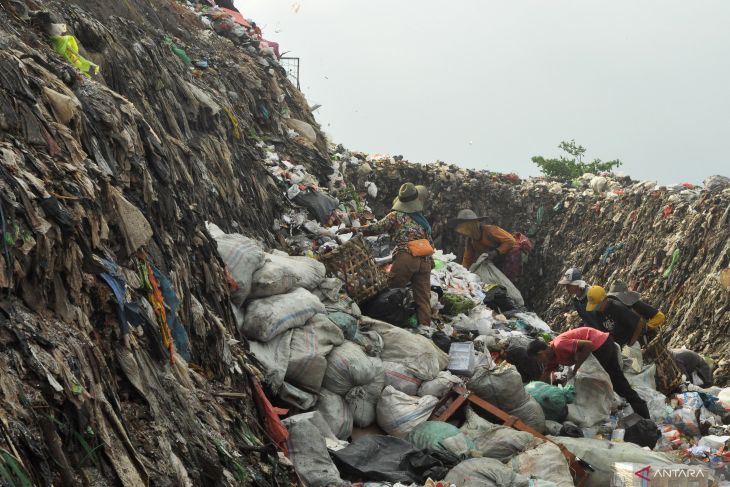
The Indonesian Government has continued to promote circular economy to support waste management in order to reduce waste, Assistant Deputy of Garbage and Waste Management at the Coordinating Ministry for Maritime Affairs and Investment Rofi Alhanif has said.
At least 50 percent of waste comes from leftovers from households and traditional markets, which is not handled, he highlighted during a virtual discussion on Thursday.
In addition, there are also textile waste, construction waste or building debris, commercial plastic waste, and electronic waste, he added.
Such waste can generate economic value through the use of the circular economy concept. The use of waste via circular economy can raise the gross domestic product (GDP) by Rp593–638 trillion by 2030.
Moreover, from an environmental standpoint, the concept can also reduce waste by 18–52 percent and reduce carbon dioxide emissions by 126 million tons by 2030.
The government has set a target of properly handling 70 percent of waste and, as far as possible, reducing waste at the source by 30 percent by 2025. This is expected to minimize waste entering the oceans by 70 percent.
According to 2021 data, around 50 percent of waste generated in the country is managed, and 41 percent is sent to landfills.
Meanwhile, 15.64 percent of the waste is managed through a waste bank or a private party and the remaining 35 percent is managed by the public, for instance, by burning, burying, or throwing into sewers.
This behavior is of concern since the waste can end up in the ocean.
There are several methods to prevent waste accumulation, for instance, by involving the public and resorting to the upstream-to-downstream integration method, Alhanif informed.
“Essentially, this upstream-downstream integration has become very important in how to change people’s behavior, handle waste as close to its source as possible, implement the 3Rs (reduce, reuse, recycle) principle, circular economy, and prevent waste from ending up in landfills,” he said.
Cooperation with various sectors such as waste banks, business players, academicians, and the public is expected to help reduce the volume of waste entering the environment.
The use of technology that transforms waste into electrical energy through waste power generators could also help achieve this.
Source from Antara News
Original News HERE
































